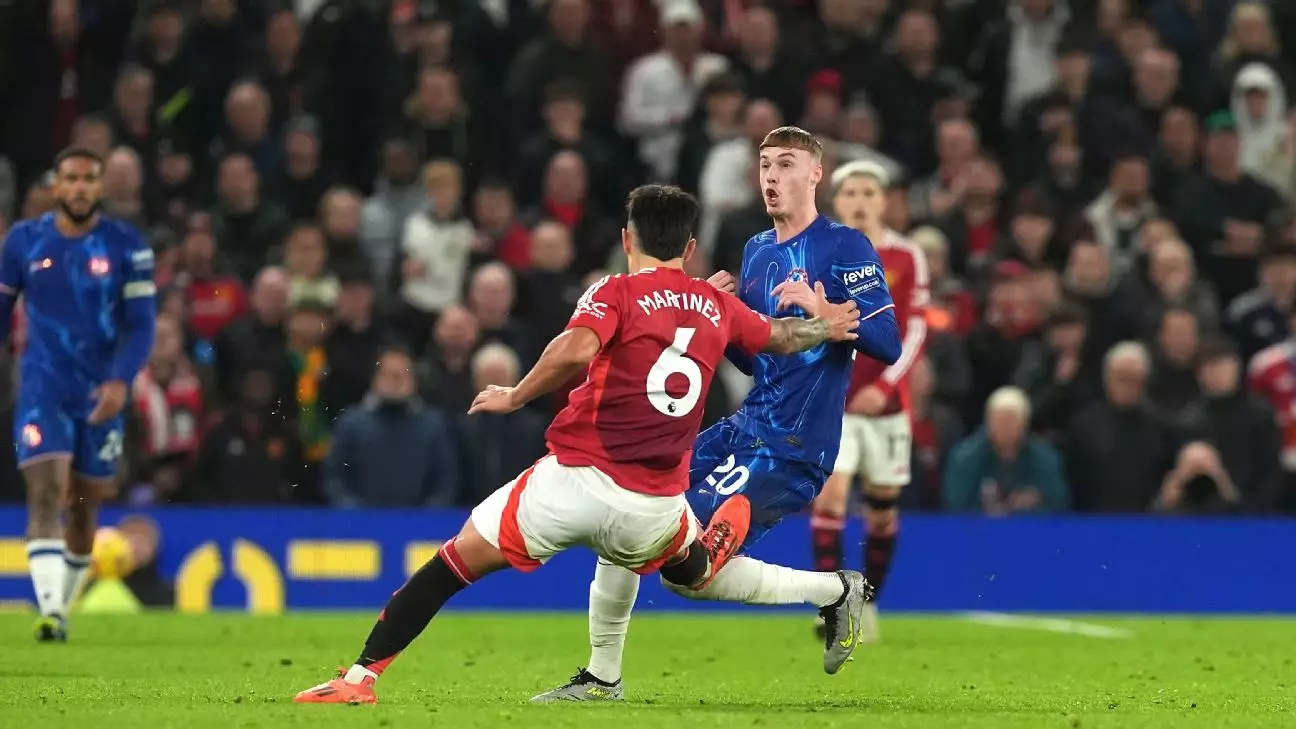In the high-stakes world of Premier League football, every decision made by match officials can spark heated debates, and the recent clash between Chelsea and Manchester United was no exception. The game, which concluded in a 1-1 draw at Old Trafford, saw a controversial moment that has since fueled discussions among pundits, coaches, and fans alike. The focal point of this debate was a challenge made by Manchester United’s Lisandro Martínez on Cole Palmer, an incident that raised eyebrows and questions around the standards of officiating in the league.
The challenge in question occurred in the dying moments of the match, as Martínez, attempting to impede Palmer’s progression, caught him high on the knee. Referee Robert Jones initially issued a yellow card, a decision that many, including Chelsea coach Enzo Maresca, vehemently disagreed with. Maresca later claimed that the foul lacked any intention to play the ball and was purely aimed at the player, arguing that such an action warranted a red card sanction. He suggested that when a tackle clearly targets the player rather than the ball, it crosses a line that should compel referees to act decisively.
In a game marked by its intensity, the definition of a “serious foul play” often comes under scrutiny. While the Premier League’s rules interpret certain challenges as reckless rather than malicious, many observers, including former United captain Roy Keane, felt that Martínez was fortunate to avoid a more severe punishment. Keane’s assessment pointed to a broader concern regarding the consistency of officiating standards in the league—a sentiment echoed by fans who demand accountability from match officials.
In the aftermath of the match, opinions split dramatically. While Maresca was adamant that the challenge warranted a reprimand far greater than a yellow card, United’s interim coach Ruud van Nistelrooy adopted a different stance. Van Nistelrooy stated he had not yet seen a replay of the foul, suggesting that his assessment relied on real-time observations rather than video evidence. This divergence highlights the subjective nature of refereeing in football, where interpretations can vary vastly depending on the viewer’s position, experience, and biases.
This incident not only raises questions about Martínez’s conduct but also invites broader discussions about player safety. As football evolves, so must the interpretations of rules and the consequences of reckless behavior on the pitch. With technology like VAR intended to enhance fairness, scenarios like this prompt discussions on whether its implementation is sufficient or needs further refinement to uphold the integrity of the game.
The controversy surrounding the Chelsea vs. Manchester United match serves as a microcosm of larger issues affecting football today. The discussions that arise post-match reflect a desire for clarity and consistency from referees—a critical component in preserving the sport’s integrity. As the Premier League continues to attract global attention, the expectation for officiating standards to evolve alongside the game becomes imperative.
While football is inherently a passionate sport laden with emotions and opinions, it is reflective of the need for a more uniform application of rules. Whether that involves stricter enforcement of fouls or enhanced training for referees, the aim remains simple: to ensure that every player’s safety is prioritized while maintaining the integrity and spirit of the game.
